
Breathtaking How To Write An Introduction Body And Conclusion A Nonfiction Book Report Elementary
1. For the body of your essay, use your thesis statement to create three parts. 2. The first part is the point of your thesis statement. The second part is your second point and the third point is your third section. 3. Within each section, you will use sub-points to prove your big point. This isn't as hard as it sounds.

Writing The Introduction, Body, And Conclusion
Main body (about 80%) Conclusion (about 10%) WRITING CENTRE Level 3 East, Hub Central North Terrace campus, The University of Adelaide ph +61 8 8313 3021 [email protected] www.adelaide.edu.au/writingcentre/ Introductions An introduction starts with general information and becomes more specific. It may include several of the following:
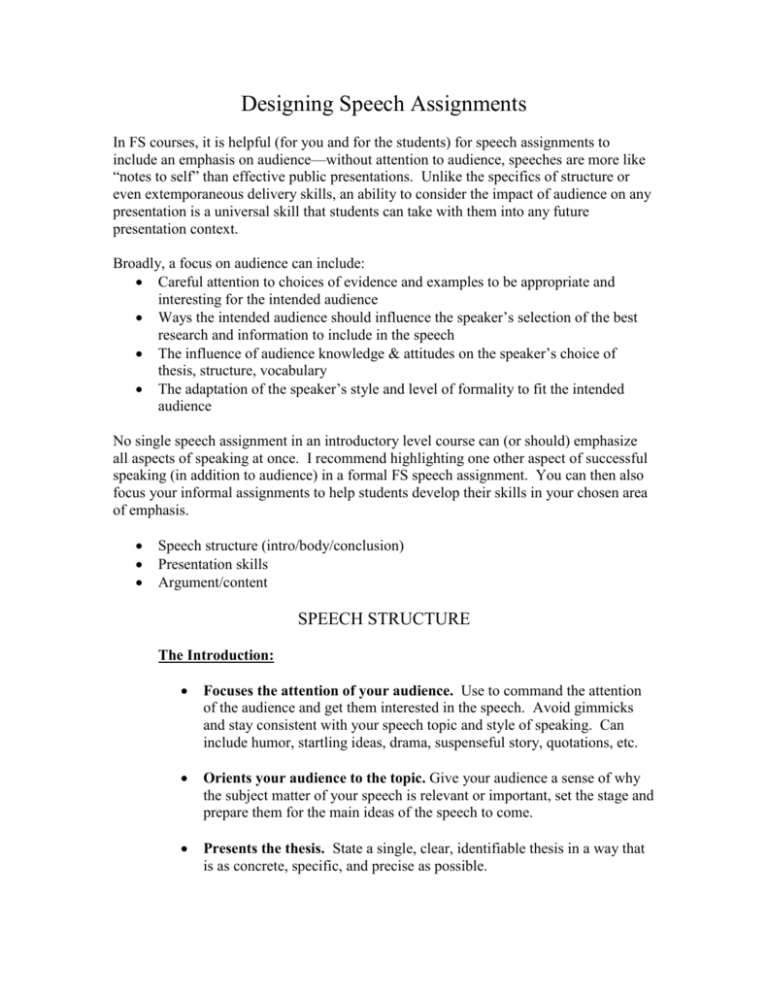
Three main parts to a speech Introduction, Body and the Conclusion
A five-paragraph essay comprises an introduction, three body paragraphs, and a conclusion, each playing a significant role in creating a well-structured and coherent essay.. For example, a conclusion for an essay on the benefits of exercise might look like this: 'In conclusion, exercise provides numerous health benefits, from increased.
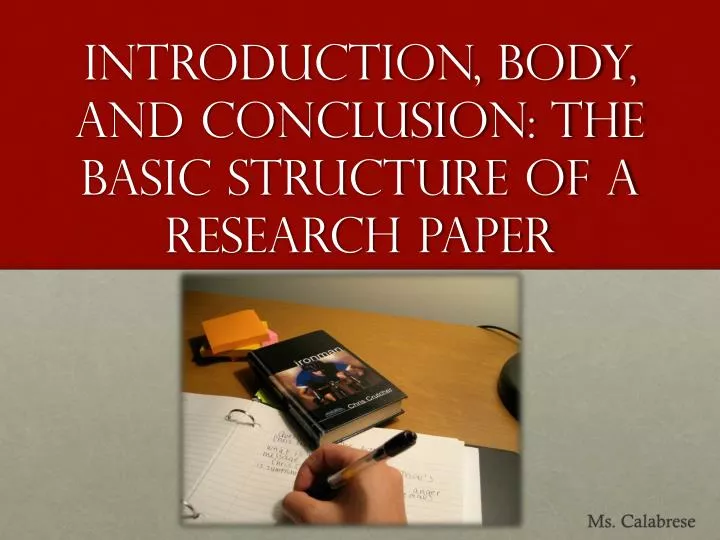
PPT Introduction, Body, and conclusion The basic structure of a research paper PowerPoint
How do I write an intro, conclusion, and body paragraph? Traditional Academic Essays In Three Parts Part I: The Introduction An introduction is usually the first paragraph of your academic essay. If you're writing a long essay, you might need 2 or 3 paragraphs to introduce your topic to your reader.

Effective Presentation. Presentation Structure Introduction Main Body Conclusion.
Conclusions wrap up what you have been discussing in your paper. After moving from general to specific information in the introduction and body paragraphs, your conclusion should begin pulling back into more general information that restates the main points of your argument. Conclusions may also call for action or overview future possible research.
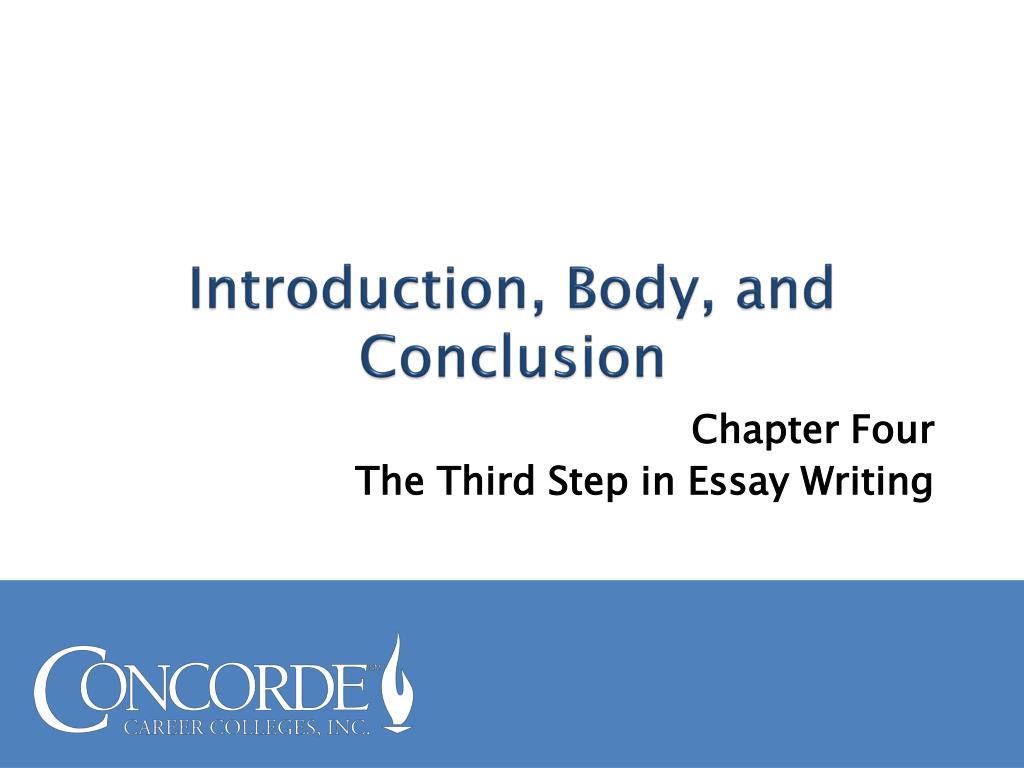
PPT Introduction, Body, and Conclusion PowerPoint Presentation, free download ID2213363
The body of the essay is a section that helps you to move and prove your thesis along a persuasive path right from an introduction to a conclusion. If you have provided a clear thesis, then you do not require several body paragraphs to prove it but in case if your thesis statement is complex, then you might need more than 3-5 body paragraphs.

Position Paper Sample With Introduction Body And Conclusion Exaple of a research paper with
Conclusion This structure has stood the test of time for one simple reason: It works. It clearly presents the writer's position, supports that position with relevant examples, and neatly ties their supporting arguments together in a way that makes their position evident. Introduction It all starts here.

Writing The Introduction, Body, And Conclusion
Main Idea. The part of a topic sentence that states the main idea of the body paragraph. All of the sentences in the paragraph connect to it. Keep in mind that main ideas are… like labels. They appear in the first sentence of the paragraph and tell your reader what's inside the paragraph. arguable.
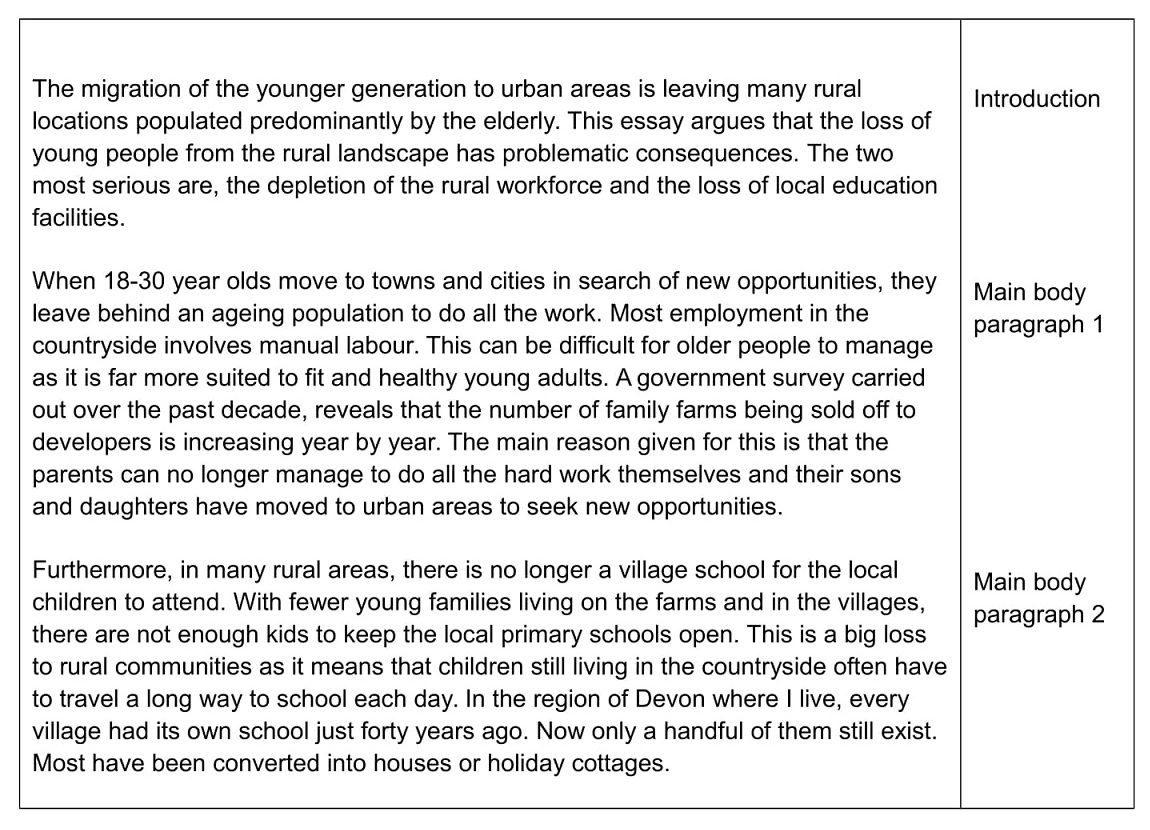
Position Paper Sample With Introduction Body And Conclusion English Composition Writing for
The basic English essay structure includes an introduction, body and conclusion paragraphs. The introduction paragraph should include the thesis statement wh.

Writing The Introduction, Body, And Conclusion
conclusion consists of three elements: a restated thesis, a summary of main ideas, and a fi nal thought. 1. Restated thesis At the start of the conclusion, the thesis is restated in words different from those in the introduction. 2. Summary of main ideas The main ideas from each of the body paragraphs are summarized as a reminder to the reader. 3.

Writing The Introduction, Body, And Conclusion
Introductions. 1) Hook: Description, illustration, narration or dialogue that pulls the reader into your paper topic. This should be interesting and specific. 2) Transition: Sentence that connects the hook with the thesis. 3) Thesis: Sentence (or two) that summarizes the overall main point of the paper.

Introduction, Body, and Conclusion Tutorial Sophia Learning How to write an essay with
A standard essay is made up of 5 paragraphs. An introductory paragraph, body paragraphs and a conclusion. First, we'll talk about the introductory paragraph: In this paragraph, you give a brief overview of the topics you're going to talk about. Generally you will provide three topics of discussion. You will provide your thesis in this paragraph.

Contoh Essay Introduction Body Conclusion Kompas Sekolah
Step 1: Hook your reader Step 2: Give background information Step 3: Present your thesis statement Step 4: Map your essay's structure Step 5: Check and revise More examples of essay introductions Other interesting articles Frequently asked questions about the essay introduction Step 1: Hook your reader
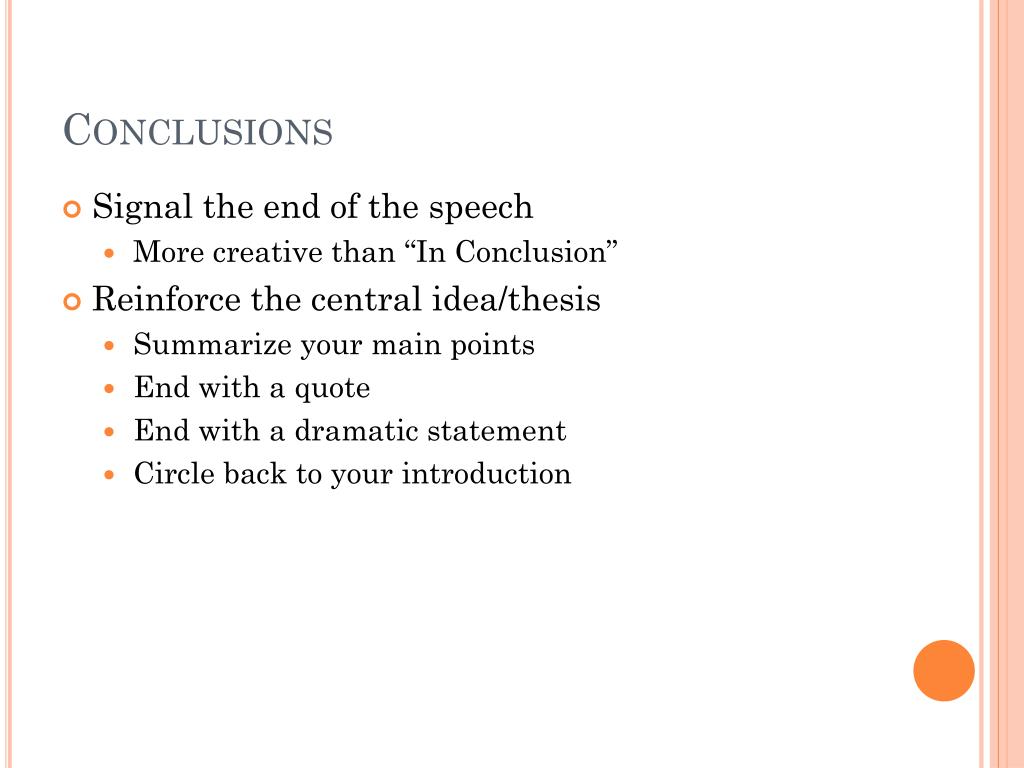
PPT Speech Organization Intro + Body + Conclusion PowerPoint Presentation ID1836565
Conclusions Below is a sample outline that can be used for most speeches and presentations. For each of these general elements, a number of specific elements are found. Not all presentations will require each of these specific items but they are covered here in the event you need a full-content presentation.

Essay writing introduction body conclusion
Examples of introductions for non-academic writing can be seen in our sample letter or memo, sample business report, and sample online article /webpage. Conclusions for academic papers An academic conclusion paragraph reminds your reader of the main points of your paper and summarizes the "take away" or significance of the conversation.

How to write a conclusion in a college essay How to Write a Concluding Paragraph
The basic structure of an essay always consists of an introduction, a body, and a conclusion. But for many students, the most difficult part of structuring an essay is deciding how to organize information within the body.